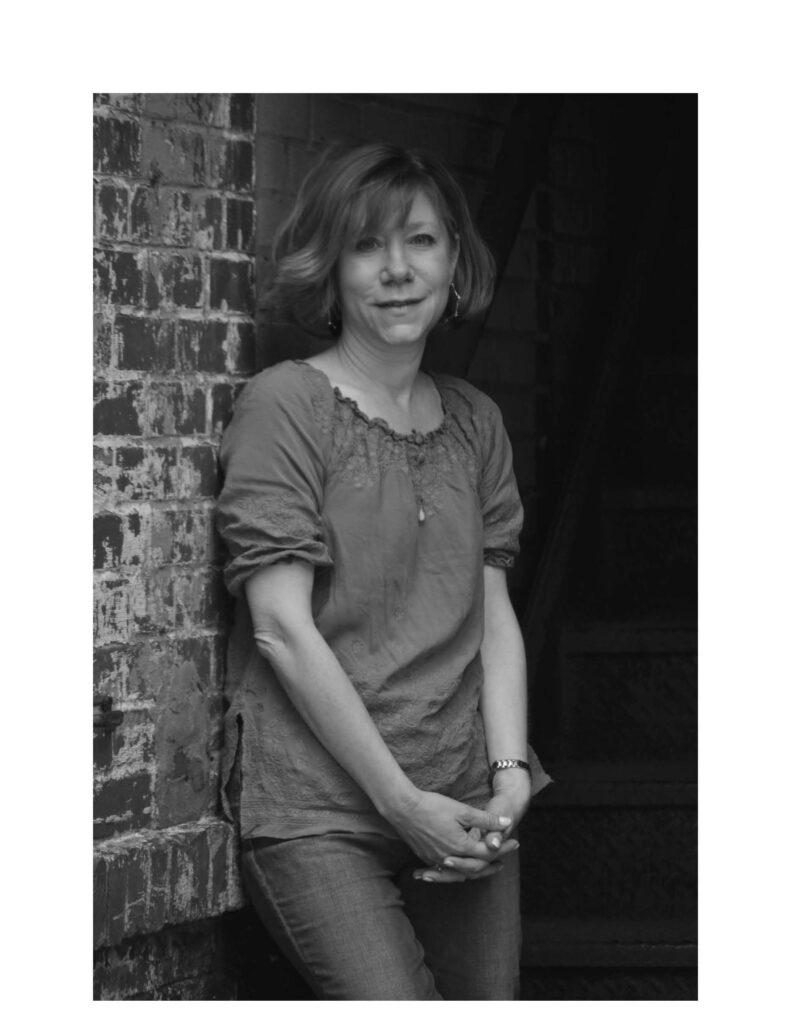WWPH WRITES ISSUE 70

WWPH Writes 70...features an anniversary poem, by Doritt Carroll, a searing, image-rich work about modern marriage, alongside The Purim Story: A Prologue , a re-imagining of an ancient story, by Alexis Chase, a young writer with much talent and promise.
Plus, two not-to-miss opportunities, both coincidentally on Thursday, March 28th in Washington DC are coming up. Bernardine “Dine” Watson, author of Transplant: A Memoir, will be in conversation with Natasha Dupee at the Martin Luther King Jr. Memorial Library in recognition of Women’s History Month, and Len Kruger, author of Bad Questions, will be in conversation with Caroline Bock at the DC Writers’ Salon. Plus, we have some insider news for our readers of WWPH Writes…more details in our WWPH News section.
Read on!
Caroline Bock & Jona Colson
co-presidents, WWPH
WWPH WRITES POETRY

Doritt Carroll is a native of Washington, DC. She received her undergraduate and law degrees from Georgetown University. Doritt is the winner of the 2023 Stephen Meats Poetry Prize. She is also the winner of Harbor Review’s 2020 Laura Lee Washburn chapbook prize for her chapbook A Meditation on Purgatory. Her poems have appeared in Main Street Rag, RHINO, and SWWIM, among others. Her collection GLTTL STP was published by Brickhouse Books in 2013. Her chapbook Sorry You Are Not An Instant Winner was published in 2017 by Kattywompus. She has been nominated for a Pushcart Prize and Best of the Net.
anniversary poem
hate is the refrigerator in the basement too hulking to move if you don’t take the door off it will smother a child resentment is the burner that won’t light until you go get the fireplace thing then it says “ha!” as you grab back your fingers sorrow is laundry obviously soggy gray socks in contrast ironing is order and contentment cooking is necessity baking is joy despair is the drawer you can’t clean and marriage is a Mason jar solid and sealed and yes Tennessee does revolve around it
©Doritt Carroll, 2024
WWPH WRITES PROSE
Alexis Chase is a senior in high school in Maryland and has been writing short stories since she was eight. She is currently applying to college and hopes to become a classical civilization major.

The Purim Story: A Prologue
Golden and rich and opulent, the royal palace of Shushan is at the center of the Persian metropolis, filled with laughing courtiers and light spilling from the oil lamps. The year is 482 BCE, the empire of Persia is vast and wealthy, and it is the third anniversary of the king’s reign. This is cause for celebration.
King Ahasuerus is having a party. Unrestrained voices echo off the walls, and the wine flows heady and fast, the serving boys scurrying around the feast hall, never allowing a cup to go dry. Around the edges of the room, dancers spin and leap, their shadows twisted by the firelight. The men shout and cheer, their speech slurred and near incoherent. The serving boys keep their eyes down, their heads bowed. They know well how a party can be as dangerous as a battle.
But at the other end of the palace, Queen Vashti is having her own party, in a much quieter, much smaller room. While her husband hosts the men, Vashti presides over the women. The wine is sweet and the servers smile as they bear food and drink to the long table down the center of the room. There are no dancers, but a small group of musicians play quietly in the corner.
Vashti, Queen of the Persian Empire, sits at the head of the table, regaling the woman next to her with a comedic story of the delightfully chaotic Shushan marketplace. The young woman is new to the palace, and Vashti remembers that feeling well.
Perhaps this is why the queen is exceptionally irked when the messenger interrupts.
The young boy is red-faced and sweating from the run across the palace, its halls made warm by the gathering crowd and the fires in the oil lamps. He bows deeply at the waist.
“My Queen,” he says, his voice shaking, maybe from exertion or fear, “His Majesty wishes for you to dance for him.” The boy opens his mouth, as if to continue, but then shakes his head.
Vashti raises one imperious eyebrow, her dark eyes made piercing and fierce by the black kohl lining them. “Do you have something more to say? Spit it out, boy. It is not your job to decide what messages you will or will not deliver.”
The messenger bows deeper, nearly folding in half, surprising her. She had no idea such a thing was physically possible.
“My Queen,” he begins again. This time, it is most certainly fear shaking his voice, “His Majesty wishes for you to dance for him.” The boy takes another breath, a pause. “Wearing nothing but your crown, my Queen.”
Vashti hears the women at the table gasp, and the conversations silence. Blood roars in her ears, fury spurring her heartbeat faster. Underneath the table, she clenches a fist.
How dare he. Is it not enough to make this humiliating demand of her? He could have asked the messenger to deliver the message quietly, but no. He must disturb the peace of her guests, as well.
Vashti keeps her face carefully neutral. “You may tell the king I decline his request.”
The messenger’s shaking freezes. “My Queen?”
“I will not dance for him,” Vashti says. She decides she will not even acknowledge the latter half of the request. “Go tell him.” She waves him off and turns back to her table, only to be met with the terrified faces of her guests. In the corner, the musicians still play, their instruments far too loud in the absence of murmuring voices.
“Ladies,” Vashti says, gesturing to the flood covering the table, a practiced smile settling on her lips. “Are we letting a messenger boy ruin our night? I think not.”
Haltingly, hesitantly, the conversations start up again, and the music fades into the background once more. Vashti turns to the young woman. “Now, where was I?”
“My Queen,” the woman says, her eyes darting to the doorway the messenger disappeared through, “are you not—”
“Am I not what?” Vashti asks, her anger carefully concealed beneath a level tone. “Scared? No, I am not. He is drunk, is all. The king is a reasonable man. He is feasting with his advisors and ministers. One of them will no doubt stop this madness.”
“Of course, my Queen,” the woman hurries to say, bobbing her head in a motion halfway between a nod and a bow. “Of course. You were telling me about the fountain and the horse.”
Vashti snaps her fingers. “Ah, so I was! The horse was a temperamental thing, you see, despised everyone but its owner. Well—”
The messenger poorly chooses that moment to scurry back in, greatly resembling a beetle or bug in his brown tunic. He kneels before her, a deeper bow than is strictly necessary. Vashti’s eyes narrow. “Yes?”
He doesn’t need to answer. She already knows what he will say. A king is not used to being refused, and Ahasuerus is not the sort of husband who graciously takes no for an answer. But she wants to hear him say it nonetheless.
“My Queen,” the messenger gasps out, having now run the length of the palace three times over, “the king requests again that you dance for him and his guests.”
For the second time, the conversations die out as the women watch their queen. The musicians stop playing as well, waiting to see what will happen.
Vashti stands, towering over the kneeling messenger boy. “Finish it.” Her voice fills the room, the voice of a woman who does not allow herself to be questioned.
Smart boy that he is, he does not break from his kneel. “My Queen?”
“Finish the message. What you said is not all of it. Let me hear all of it.”
The boy’s voice sounds hollow, echoing off the tiled floor as he presses his forehead to the ground. “The king requests you dance for him and his guests wearing nothing but your crown, my Queen.”
Vashti’s hands clench into fists, fingernails digging into palms. “I refuse.”
Something that vaguely resembles a sob works its way out of the messenger boy’s mouth. He does not want to deliver a second rejection to the king. “My Queen—”
“I refuse. Go back. Tell the king what I’ve said. I refuse.”
“Yes, my Queen.” The beetle-like messenger boy scrambles out of the room.
Vashti turns back to her table, surveying the women she is tasked to host and entertain. They do not look entertained. They look scared. They know the moods of powerful men.
“My Queen,” one of the older women ventures, her black hair shot through with streaks of silver and gray, “if I may…He is the king, and your husband.”
Vashti lifts her chin. “I am well aware who my husband is, thank you.”
The old woman looks at the table, and in her lap, she wrings her hands. “I only meant… It might do you well to do as he says.”
Vashti throws her head back and laughs. “As he says! And put myself on display like that? For what reason? I have my honor. Why would I throw it away?” Ahasuerus has already taken so many things from her—taken her away from her home, her family, and her freedom. He has imprisoned her in this beautiful cage of a palace. She will not give him any more.
“He is the king,” someone whispers, too quietly for Vashti to determine the source.
Her anger demands an outlet. She grabs a glass of wine on the table and throws it at the wall. Glass like jewels and wine like blood scatter over the tiled floor.
“I know who he is!” she shouts, and the women flinch as the cry rebounds through the room. But Vashti barely notices, distracted by the drum-beat of her pulse in her ears. “It gives him the right to ask, but it does not mean I will dishonor myself for his amusement! I will not! I will not!”
She is still shouting several minutes later when the messenger returns, panting and trembling, a cut leaking blood down his cheek, and Vashti turns to him, her eyes ablaze with wrath. Her purple dress, the color of royalty, drapes to the floor, and her golden jewelry weighs on her neck and her wrists.
And the messenger boy is back. Vashti knows what that means.
“Did you not hear me, boy?” she thunders, pointing to the hallway he came from. “Run back to the king! Tell him what I’ve said! I am queen! I refuse!”
The boy bows his head. Not a bow of respect, but resignation.
“In that case, my Queen,” he says, barely audible, “His Majesty the King wishes for you to go quietly.”
From the hallway behind the boy emerge two armored guards, their faces unreadable, polished swords hanging at their sides. In her anger, Vashti does not see, but the women eye the sheathed blades and grab each other’s hands.
Vashti’s laugh is hysterical, and she knows, but there is no longer any reason to hold it back. “He sent guards to drag me to his feast?”
“No, my Queen. His Majesty sent guards to escort you to your execution.”
The guards advance, their footsteps thudding on the floor, heavy and inescapable.
Vashti does not run. She still has her honor.
They grab her by the arms. She does not fight. She will go with dignity. When she leaves the room, the women bow their heads and stay silent. The musicians do not pick up their instruments again.
Courtiers and servants alike stare at the captured queen as she is paraded through the halls of the palace. She does not acknowledge them. Her title and status have not abandoned her yet.
She is thrown into a cell in the palace’s seldom-used dungeon, dark and hot. She does not cry or wail.
Several days later, when she is being led to her execution, she does not beg for mercy. She still has her honor, her dignity, her title. She will go to her death a proud, noble queen.
Her death is precisely as she wishes it.
©Alexis Chase 2024
WWPH NewS
Martin Luther King Jr. Memorial Library in Washington, DC … hosts an author talk with Bernardine “Dine” Watson in recognition of Women’s History Month…Thursday, March 28th from 7-9 pm. From their website:
“This powerful story offers insight into her journey with Focal Segmental Glomerulosclerosis (FSGS), a rare, incurable, kidney disease that primarily affects Black people. Don’t miss this opportunity to engage in important conversations about health, self-advocacy, and the experiences of Black women. Learn more about the book and the author below and register to let us know you are coming.
This program is brought to you by the DC Public Library Foundation and the Anacostia Community Museum. Free copies of Transplant: A Memoir to attendees in need courtesy of the DC Public Library Foundation.” A profound thank you, to the DC Public Library Foundation, from all of us at the Washington Writers’ Publishing House. FREE and OPEN to all. More information and registration here.

Thursday, March 28th at 7 pm, we have another event (because that’s sometimes how things roll!). If you are interested in learning more about the experience of publishing your book (poetry, novel, short story collection, memoir or essay collection) with a small press such as the Washington Writers’ Publishing House, join WWPH president/editor Caroline Bock with 2023 Fiction Award-winner Len Kruger at the DC Writers’ Salon with the Inner Loop. RSVP here.
Don’t miss our Busboys & Poets (Takoma location) reading on Sunday, April 7 at 6 pm…
SUBMIT to WWPH Writes. We are reading now for our summer issues. We are eager for new voices! We are an inclusive, writer-driven community and want to see your poetry and prose (1,000 words or less). Free to submit. Send us your work via our Submittable link here. Insider news: we are planning our annual WWPH PRIDE contest with cash prizes and publication. This year, PRIDE will have a special call for allies of the LGBTQ+ community. Look for WWPH PRIDE to open in May. And for those asking about our annual TINY POEMS special summer issues–yes, they are returning in August! Insider news: we will be seeking tiny odes! Keep reading WWPH Writes for details.
Our 2023 Award-Winning Books continue to garner attention and acclaim. They are available everywhere books are! Support your local independent bookstore and your WWPH by ordering them from www.bookshop.org. And our classic ebooks are now on sale!



